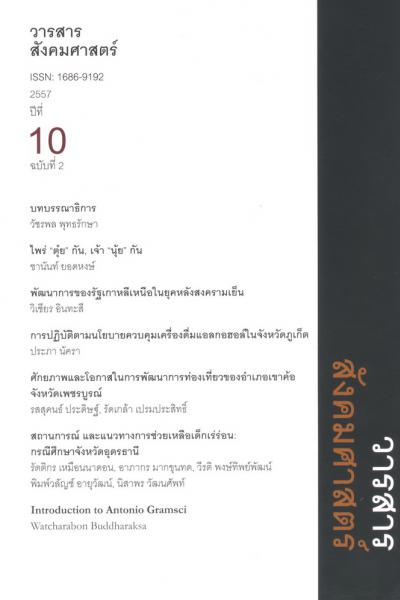Development of North Korean State in the Post-Cold War Era
Main Article Content
Abstract
Since the end of the Cold War, though North Korean state has been concerned about the US and South Korean military threats and experienced an economic crisis and long severe famine, it did not collapse like the communist states in Eastern Europe did in the late 1980s. Furthermore, the Kim Jong-un's assumption of political power in December 2011 became the third successive generation of his family to lead the nation that characterizes the North Korean political system as the monolithic system. From this background, this study aims to explore the development of North Korean state in the post-Cold War era in political, economic and social aspects, which argues that political leaders aim at promoting regime stability, and to find how North Korean leaders deal with threats in order to prevent the regime breakdown. The fndings suggested that political leaders in North Korea are concentrated in a specific background group. They maintain political power and strengthen the regime by purging opponents, and create legitimacy by employing political ideology. Though North Korean leaders initiated economic reform to address the moribund economy, it was abolished later due to worrying over the impact on the regime. They keep people under surveillance and prevent them to reach outside information. The reclusive regime also develops the cult of personality in order to gain people's loyalty. Due to emphasizing the regime survival, North Korean leaders fail to deal with problems that people have experienced. Under the repressive regime, autonomous groups have hardly emerged in North Korea as a driving force of regime change.


